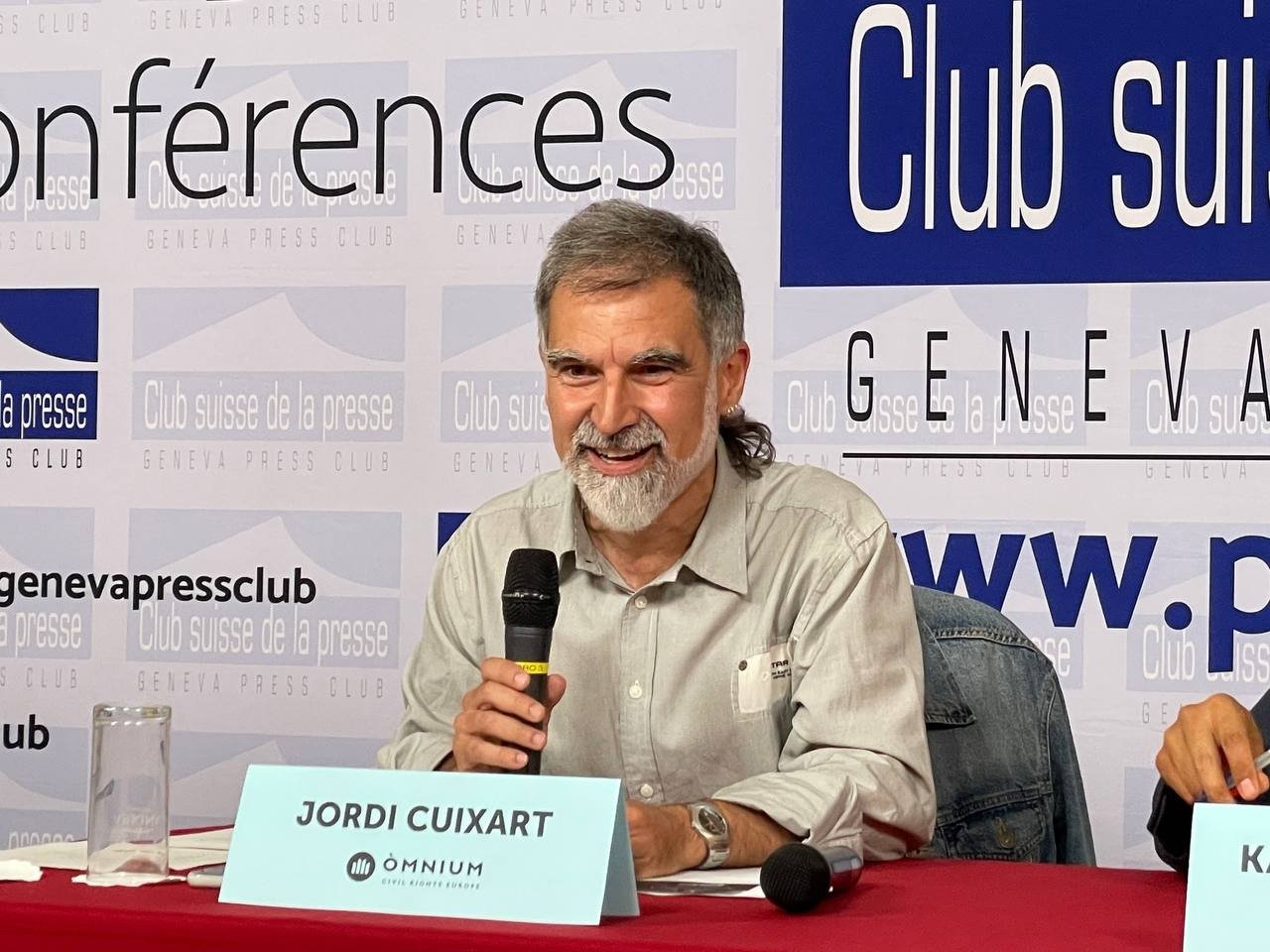The former president of Òmnium Cultural, Jordi Cuixart, has this Thursday spoken about Catalangate, the case of espionage against about sixty people linked to the Catalan independence movement. And he did so precisely in the city of Geneva, Switzerland, in the framework of the fiftieth session of the United Nations Human Rights Council. In this context, the Institute of Human Rights of Catalonia along with Òmnium Civil Rights Europe - a body linked to the Catalan cultural organization and currently chaired by Cuixart - organized an event featuring six international activists and experts who spoke on the different implications of illegal surveillance in terms of human rights. Thus, the Òmnium representative was able to denounce the Catalangate affair in first person before an international audience.
Cuixart took the opportunity to explain in depth all the details of the case, which is centred on the Pegasus spyware developed by the Israeli company NSO. In fact, today's presentation took place not very long after that same space had been used for a press conference on the assassination by Israeli security forces of journalist Shireen Abu Akleh. "Defending human rights in Palestine, in the Catalan countries and around the world is very important, because they are the same cause." In this regard, he asserted that Catalangate, which came to light in April, is the largest case of illegal espionage ever recorded, and that it has been verified by research and validation processes carried out by prestigious figures and bodies, such as the University of Toronto's CitizenLab research centre, Amnesty International and the New Yorker magazine. And, as if that weren’t enough, the surveillance also took place on French, German, Belgian and Swiss territory. “This is a very serious and important case,” he affirmed.
Thus, the former president of Òmnium put on the table the doubts which the affair raises about democracy in Spain, as, despite acknowledging that the country's CNI intelligence agency had judicial authorization to conduct 18 of the 65 spyware hackings, the rest "have not been determined." "The uncontrolled use by the state of these instruments is not proportionate or legitimate by international standards. We do not know why we have been spied on, for how long, who has access to this information, how it has been used nor where it is stored," he warned. The cultural entity he represents is aware of three senior members who have been spied on, while the journalist Meritxell Bonet, Cuixart's partner, has also been a victim.
"All this leads us to confirm that Spain is a flawed democracy," he added. "It is not normal that in our society, those people who have been illegally spied on are the ones who have to work to clarify the facts, while the Spanish government justifies the espionage." In fact, he made an explicit reference to the fact that prime minister Pedro Sánchez and his defence minister, Margarita Robles, far from clarifying Catalangate, have chosen to defend it as valid and necessary to deal with the Catalan independence movement. "In a real democracy, a case of this nature would lead to an independent investigation, a commission of inquiry and the assumption of responsibilities. Spain has done nothing and will do nothing, because none of Sánchez's measures guarantee that he will not do the same again," he noted. And Cuixart's criticism of the state did not end there, but rather he went on to warn that "illegal espionage against dissidence will continue in Spain in the near future," before denouncing the vote of the Spanish Socialists (PSOE) alongside the three parties of the right (PP, Vox and Cs) in the Congress of Deputies to reject any commission of inquiry in the Spanish Parliament.
Omnium complaint accepted
Furthermore, Cuixart also celebrated that, after having lodged the first legal complaint against the Catalangate espionage, there has already been a response: the judge of Barcelona investigative court 21 has partially admitted the complaint for interference with the mobile phones of the three Òmnium members known to have been hacked, although with the nuance that he ruled out investigating the company NSO and also refused to accuse Spanish organisms of the authorship of the espionage. "They have put a lot of obstacles in our way and we do not trust the Spanish judicial system, but it is a path that we must set out on in order to reach international courts." He also assured that the cultural platform will go further and will work actively to make the European Union respond to the question, through talks with the president of the European Commission, Ursula von der Leyen, and a commission like the one that is already open in the European Parliament to study the use of Pegasus in countries such as Poland and Hungary, although so far it has not been expanded to include Spain.

